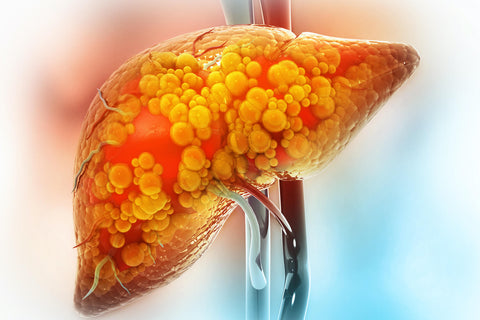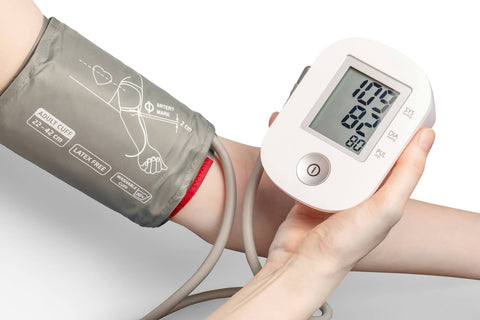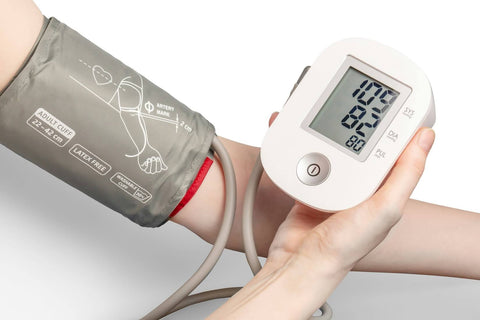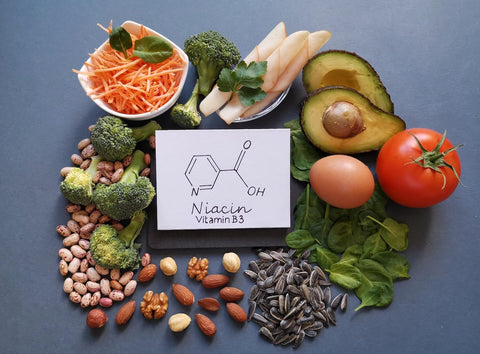Vitamins are essential micronutrients that play a vital role in maintaining good health and well-being. They are crucial for the proper functioning of the body's various systems and are involved in a wide range of physiological processes. This blog post will explore the role of vitamins in the body, focusing on their importance, sources, and the consequences of deficiencies.
Understanding Vitamins
Vitamins are organic compounds required in small amounts for normal metabolic functions. They cannot be synthesized by the body in sufficient quantities, so they must be obtained through the diet. There are two types of vitamins: fat-soluble and water-soluble. Fat-soluble vitamins (A, D, E, and K) are stored in the body's fatty tissues, while water-soluble vitamins (B-complex and C) must be replenished regularly as they are not stored in the body.
Vitamin A (Retinol)
Vitamin A is vital for maintaining healthy vision, skin health, and the immune system. It's a fat-soluble vitamin found in foods like carrots, sweet potatoes, and leafy green vegetables. This vitamin helps form and maintain healthy teeth, skeletal and soft tissue, mucous membranes, and skin. It's also known for its role in promoting good vision, especially in low light, and may be important for reproduction and breastfeeding.
B Vitamins (B1, B2, B3, B5, B6, B7, B9, B12)
The B vitamins are a group of eight water-soluble vitamins that play essential roles in cell metabolism. They help the process your body uses to get or make energy from the food you eat. They also help form red blood cells. You can get B vitamins from proteins such as fish, poultry, meat, eggs, and dairy products. Leafy green vegetables, beans, and peas also have B vitamins.
- B1 (Thiamine) helps the body's cells change carbohydrates into energy and is essential for heart function and healthy nerve cells.
- B2 (Riboflavin) is important for body growth and red blood cell production.
- B3 (Niacin) helps maintain healthy skin and nerves. It also has cholesterol-lowering effects.
- B5 (Pantothenic acid) is essential for the metabolism of food. It also plays a role in the production of hormones and cholesterol.
- B6 (Pyridoxine) is involved in the process of making serotonin and norepinephrine, which are chemicals that transmit signals in the brain.
- B7 (Biotin) is involved in the production of hormones.
- B9 (Folate) helps with tissue growth and cell function. It's especially important for pregnant women.
- B12 (Cobalamin) is crucial for the normal function of the brain and nervous system and for the formation of blood.
The Power of Vitamin C
Vitamin C, also known as ascorbic acid, is a vital nutrient that plays a crucial role in various bodily functions. It's well-known for its antioxidant properties, which help protect the body against oxidative stress and free radical damage. One of the primary roles of Vitamin C is in the synthesis of collagen, a key component of connective tissues. This makes it essential for the healing of wounds and the maintenance of healthy skin, tendons, ligaments, and blood vessels.
Vitamin C also significantly boosts the immune system. It enhances the production and function of white blood cells, which are crucial for fighting infections and diseases. Additionally, Vitamin C is involved in the absorption of iron from plant-based foods, aiding in the prevention of anemia.
The human body cannot produce Vitamin C, making it essential to obtain it through diet. Rich sources of Vitamin C include citrus fruits, strawberries, bell peppers, spinach, kale, and broccoli. The recommended daily intake varies by age and sex but typically ranges from 75 to 90 milligrams for adults. Excessive intake can lead to side effects like gastrointestinal discomfort, so it's important to stick to recommended guidelines.
The Significance of Vitamin D
Vitamin D, often referred to as the “sunshine vitamin,” is unique because it can be synthesized by the body when the skin is exposed to sunlight. It plays a pivotal role in maintaining bone health by facilitating calcium absorption in the gut. This is crucial for the development and maintenance of strong bones and teeth. In addition to its skeletal benefits, Vitamin D is important for muscle function and immune system regulation.
Vitamin D deficiency has been linked to various health issues, including osteoporosis, muscle weakness, and an increased risk of infections. Interestingly, emerging research suggests that Vitamin D may also play a role in mood regulation and the prevention of chronic diseases such as heart disease and certain cancers.
Dietary sources of Vitamin D include fatty fish like salmon and mackerel, fish liver oils, fortified dairy products, and egg yolks. However, due to limited dietary sources, sun exposure and supplements are the primary means for most people to maintain adequate Vitamin D levels. The recommended daily intake varies, but generally, adults are advised to aim for 600 to 800 IU (International Units) per day.
The Consequences of Vitamin Deficiencies
Vitamin deficiencies can lead to a range of health problems, underscoring the importance of a balanced diet rich in essential nutrients. Deficiencies often develop slowly over time and can result in subtle symptoms that may be overlooked until they become more severe.
A deficiency in Vitamin C can lead to scurvy, a condition once common among sailors. Symptoms include fatigue, gum disease, and skin problems. Although rare in modern times, it highlights the critical role of Vitamin C in overall health.
Vitamin D deficiency is more common and can result in bone pain, muscle weakness, and an increased risk of bone fractures. In children, severe Vitamin D deficiency causes rickets, a condition characterized by soft, weak bones.
Other vitamin deficiencies, like those of Vitamin B12 or A, can lead to serious conditions, including neurological disorders and impaired immune function. This emphasizes the need for a well-rounded diet and, in some cases, the need for supplementation, especially in populations at risk of deficiencies, such as the elderly, pregnant women, and those with certain medical conditions.
Embracing Holistic Health with Phytage Laboratories
In conclusion, the role of vitamins in maintaining optimal health cannot be overstated. They are fundamental in supporting various bodily functions, from immune health to bone strength. However, achieving the right balance of these crucial nutrients can be challenging in today's fast-paced lifestyle. This is where Phytage Laboratories comes into play. We offer a range of daily supplements, each meticulously designed to address specific health concerns. Our innovative products, such as Tinnitus 911 for ear health, Blood Pressure 911 for cardiovascular wellness, and Prostate 911 for prostate health, are crafted with the utmost care and quality ingredients.
By incorporating Phytage Laboratories' supplements into your daily routine, you can take a proactive step towards comprehensive well-being. Contact Phytage Laboratories today or explore our array of health solutions and take the first step towards a healthier, more balanced life. Remember, your journey to optimal health is just a supplement away — embrace it with Phytage Laboratories.

 Cart
Cart



















































 1-800-822-5753
1-800-822-5753
